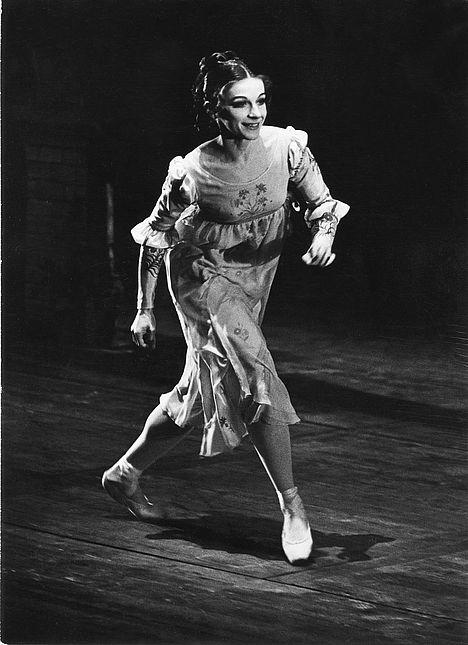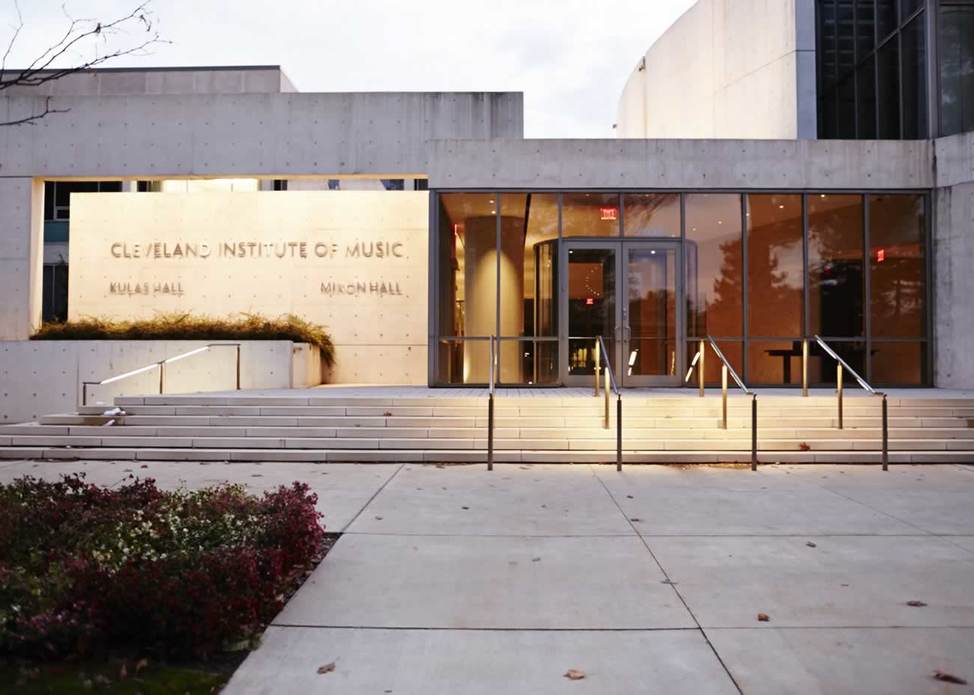Israel Radio breaks Wagner taboo – oops!
mainThe Voice of Music channel of the Kan broadcasting corporation – formerly the Israel Broadcasting Authority – entertained its listeners on Friday with selections from Meistersinger.
Before long, there were protests. Wagner, Hitler’s favourite composer, is not performed in Israel under a tacit ban that has persisted since 1939. It is not illegal to play Wagner in Israel. It’s just not done. And Meistersinger, Hitler’s favourite opera, least of all.
By Sunday, Kan was forced to apologise: ‘The editor erred in his artistic choice to play the piece, and it was a wrong public decision. ‘We apologize to our listeners.’
One of those junior editors, no doubt. An intern, maybe. Twenty years old and never heard of Hitler.
I blame the education system.






“One of those junior editors, no doubt. An intern, maybe. Twenty years old and never heard of Hitler. I blame the education system”
I just don’t get this. Are YOU saying this, Norman? Regardless, how does that make any sense? How could someone in Israel – even a twenty year old – know “Die Meistersinger” but not know of Hitler?
It just sound like more bashing of young people to me. And while I ‘get’ the whole sensitivity to Wagner thang, why should this guy have to apologize to anybody? What would they have done if he hadn’t, stoned him? . . . seriously, get over it now. This is music written well before Hitler, the third reich, the Weimar Republic, the depression, the reparations for WWI, World War I, the insane European arms race, the Dreadnaught, Bismark as Reich’s Chancellor, etc. In fact, the outcome of the Franco-Prussian war wasn’t determined for another two years. German nationalism? . . you bet. But the German states weren’t even unified at this point. And guess what? . . . many Jews were probably in favor of German unification as well. There was also French nationalism, Italian nationalism (with even crazier schisms), Russian nationalism, Belgian nationalism, British nationalism . . . and on and on it goes.
Don’t forget Andorra which has preserved its independence due to its fiery nationalism during 236 years and the fact that nobody could find it.
Barry, Norman was ironic.
If, when you entered Auschwitz, you passed beneath the arch that proclaimed “Work will make you free” and speakers blared Wagner’s Meistersinger Prelude, as survivors have reported, you might have an aversion to this man’s music. I’m a lover of Wagner’s music, have more than one CD version of all his major works in my collection, and I’m not Jewish. But as long as someone in Israel is offended by Wagner’s music is still living, I totally understand. These people and their descendants (Never forget!) really don’t care about your history lessons. It’s like people in my country white-splaining to black folks why they shouldn’t be upset when the confederate song Dixie is played at public events, or why a native American (subjugated and destroyed by white settlers) might not want to be the mascot for some sports team.
Go put on your Meistersinger prelude and bask in its beauty and joy. It was the Fuhrer’s favorite opera.
Arts in Israel survive nicely without broadcasts and public performances of Wagner.
According Anita Lasker-cellist in Aushwitz camp Wagner music wasn’t played-not enough musician in than orchestra. It played now for visitors. When Stalin had terminal stroke he was found in room and his favored record on patephon 23rd Mozart piano concerto still played. Should Russia forbid Mozart-favored music of murderous dictator?
No, of course not – and Wagner is not forbidden in Israel either.
After all, it is the best piano concerto of the bunch.
All my Russian friends say that they have to think of the gulags when listening to this concerto.
…..and United States nationalism.
Schoolchildren of Israel visit Holocaust museum, celebrate Day of Holocaust. I met group of Israeli high school students on trip in Poland. They visit Jewish Ghetto, Maidanek- they know A.Hitler, but I doubt if they learn about Chopin and visit his historical site. They drill to hate. Lame excuse that 20 year old never heard of Hitler in Israel.
If they are “drilled” to hate murderous hate, then I am all for it.
It’s a fact that Wagner expressed obnoxious antisemitic views and that his music was misused by the nazis. However, many israeli people enjoy listening Wagner’s music for what it is: one of the highest expression of occidental Art. They should be allowed to do so. Those who link it to the holocaust, often having lived through it, must be free not not listen to it and the associated memories.
That’s the whole problem in a nutshell. Wagner’s antisemitism was a combination of personal resentment and cultural critique, clothed in racist terms (racism still had no holocaustic overtones in the 19th century, in spite of not quite being salonfähig). Wagner was not a murderer, and his antisemitic writings are contradictory and some of the later texts speak of reconciliation. His paranoia about ‘Jewry’ is equalled by his contempt for ‘degenerated’ Germans or Europeans in general (esp. the French). He equally hated the militarism and philistinism of the 1870 empire. Also he hated music critics, onions, creditors, vivisectionists, Munich courtiers, and tourists coming-up to his house Triebschen in Switserland. He would turn in his pompous grave if he knew about the appropriation by the nazis.
Wagner’s Meistersinger is horrible. Only 2 female roles out of 10!
(And thank you, Richard Strauss, for Der Rosenkavalier.)
Don’t agree. As a whole, I always feel it is too dense and people chat far too much, but there are episodes which are profoundly moving (like the quintet and the prelude to the 3rd act) or stimulating (like the prelude if played in the right tempo, and the first ‘wrong’ prize song by Walther). The striking thing is the C-major radiance throughout the whole work, after the dungeon of the Ring and the metaphysical harrowing of Tristan – in fact, its neo-baroque / neo-classical idiom is totally unusual for Wagner and demonstrates his thoroughly traditional side. I don’t know of any other composer with such variety of intent and equally successful in any direction.
The problem is that we are to believe it is just a coincidence that Wagner was a determined racist, and that the metaphors of the Ring are easily given a racial interpretation.
An extra problem is that racism was/is not the same in every place and time – reading 19C sources makes this clear. The much greater acquaintance of Europeans with non-European cultures and peoples in the 19th century touched a profound insecurity about identity, and hence the wish to see themselves as ‘superior’. The same reactions we see today all the time. (All the more embarrassing that the Israeli government wants to define the nature of the country in racist terms.)
It was 3rd act of Gottendammerung, not the Meistersinger, conducted by –
of all conductors- Barenboim, which for the minister of Culture is even a bigger problem than the opera itself….
Actually, in the current ultra-right-wing state the country has willed itself into, playing a Wagner overture here and there is the least of it. They might as well appropriate Wagner as soundtrack for their cause and stop all manner of (democratic) pretensions, deceptions and obfuscations.
Wagner’s works have been aired many times before on the radio in Israel, but before Barenboim no one noticed. I remember several occasions in the 60’s and 70’s when a listed program (listed in the list of upcoming radio programs in the papers, if you remember those things) was suddenly interrupted and the “magish” (editor?) announced that “we are now going to play Wagner’s” this or that. I was introduced to Wagner’s music through these recalcitrant “magishim” on Israeli over two decades in the 60’s and 70’s.
Those of us who knew Wagner’s music understood that this as part of a quiet campaign to introduce his music to Israeli audience and break the ban. It was always the decision of individual “magishim” (editors? presenters?) to do that because of their strongly held feelings about the issue – they had a lot of leeway what to play, they were knowledgeable and knew exactly what they were doing. They never played Karajan or E. Schwarzkopf. This created no backlash, because it was not announced in advance and I don’t know how many people even listened to these programs – I never met anyone personally who told me they listened to the concert on the radio last night.
This quiet campaign could have succeeded, and at a certain point in the 70’s there was a feeling among people who cared that a tipping point was approaching. So someone advised Mehta that the time was right to break the ban, and he made his blunder. Then Barenboim’s public campaign ruined all the work done quietly for decades to break the ban. Barenboim knew the rules and dynamics of Israeli politics and played Israeli politicians to score points in Europe; he did not give a rat’s –s whether Wagner was played or not in Israel.
This last episode was not an accident and is part of a rebirth of the quiet resistance to the ban. The ban on Richard Strauss was broken by using these methods of playing him for years under the radar and then suddenly formalizing programming his works. As far as Wagner goes, Barenboim ruined it probably forever.
But who even listens to radio anymore other than while driving, and in Israel people drive less than in the US.
“…..and in Israel people drive less than in the US.”
If true, something which is very much in Israel’s favour.
I wonder – if those ones protesting never listens to Wagner in Israel,
how did they know it was Wagner that was playing….?
What kind of hypocrisy it is to listen to Wagner at home but not allowing it to be played on the radio?
Because the program’s presenter identified the work:
From Ha’aretz: “On “As You Want,” edited by Uri Marcus, the program aired a live recording of the third act of the opera (Götterdämmerung), conducted by Daniel Barenboim, at the Bayreuth Festival in 1991.
“In 1849, Richard Wagner began to formulate his revolutionary ideas about opera as a result of anarchist political activity, and gave rise to a new artistic form merging poetry and drama…we will listen to the final act of ‘Twilight of Gods,'” the program’s presenter, Avishai Pelchi, said on air.”
“Jewish people driving German cars”-from Sarah Silverman song
https://www.youtube.com/watch?v=_nS66IvbvcI
Thank you for posting-this episode by Larry David, my favored serie “Curb your enthusiasm” say it all! +100
Curb your enthusiasm, curb it, please…
It’s a complicated issue, and as someone with only a tiny bit of Jewish blood I perhaps cannot quite fully understand the feelings of some Jews about Wagner (I think I can, but that is perhaps arrogance). I would nonetheless suggest that one can separate the worst aspects of the man from his music: see Roger Scruton on Wagner for a thoughtful perspective (for example, https://www.theguardian.com/music/2003/apr/12/classicalmusicandopera.artsfeatures1 )
Yes, but Scruton has no eye/ear for much of the heroism in Wagner’s operas which is not convincing at all, that is: in terms of music. This offers the excuse to directors to mock it with irony and contradiction.
I have never understood why MEISTERSINGER was Hitler’s favorite. There’s very little in it to appeal to Nazi sensibilities. Only the short, tacked-on bit in Sachs’ final monologue, about “false, foreign powers” menacing “us”, and, the shouting about “holy German art” at the very end. There are a couple of other details, perhaps–Sachs suggestion in Act 1 that the rules of composition should yield to the “Volk”‘s natural artistic sensibilities, Hitler probably liked that. But these are minor details; the main thrust of the opera is the need to be OPEN TO outside influences, and the danger that cultural isolation and inbreeding will sap the culture’s “strength and life”. This is an anti-Nazi argument!
Ideologically speaking, Wagner ought to have preferred SIEGFRIED and LOHENGRIN. In SIEGFRIED, Mime the dwarf, an obvious incarnation of a stereotype of Jewishness, tries to profit by exploiting the Aryan’s natural skill and prowess, by confusing him about his origin and identity–the exact narrative the Nazis loved most. And in LOHENGRIN, Ortrud, an unscrupulous, clever leftover practitioner of a formerly dominant religious order (pagan worship of “Wodan” and “Freija”) tries to subvert the good-guys’ religion of one benevolent “Herr und Gott”, by intermingling with the prevailing elite (marrying Friedrich von Telramund), and attacking the heroes’ faith–again, just what Nazi ideology accused the Jews of trying to do to German culture. Also, Ortrud shamelessly takes advantage of the protagonists’ leniency and clemency– Lohengrin sparing Friedrich’s life after the trial-by-combat, and Elsa forgiving Ortrud in Act 2– to further advance her machinations. The message: never show mercy, kill every defeated foe– resonated strongly with the Third Reich. Contrast MEISTERSINGER, in which, even when the bad-guy Beckmesser displays the most despicable aspect of his character, by deciding to plagiarize Walther’s song (which he thinks is Sachs’), Sachs recognizes goodness in Beckmesser and the possibility of redemption, when he muses: “A moment of weakness comes for everyone; the person stupidly lets it guide him.” (“…die schwache Stunde kommt für jeden; da wird er dumm und läßt mit sich reden.”) Can you imagine any Nazi shrugging off an opponent’s dishonest dealing that way?
So I don’t understand why Hitler loved MEISTERSINGER so much. If anyone has any thoughts about this, please enlighten me.
It is pointless to want to understand why stupid, evil, entirely degenerate neurotics and criminals like this or that, since their mind is unhinged anyway. The superficial nationalistic gloss of Meistersinger will have been enough to invite complete misunderstanding of the work.
The nonsense that Meistersinger was ‘Hitler’s favourite opera’ gets repeated over and over by those with an axe to grind but is without foundation. It was exploited by Bayreuth management in the 1940s to curry favour with the regime and avoid Party control (the fate of other opera houses), but the reality is that after 1933 the number of Wagner performances in Germany decreased by more than a third and there was a corresponding rise in popularity of the works of Lortzing, Puccini, Verdi, Mozart and contemporary composers like Strauss and Orff.
Yury Aronovich, Russian conductor when immigrated to Israel 1972 established ban on Wagner music as anti-Semitic composer. YA didn’t stayed in Israel long but ban survive till today. YA was very talented conductor, moved to Germany and died there 2002
The ban was not instituted by Yuri in 1972. It existed from 1945.